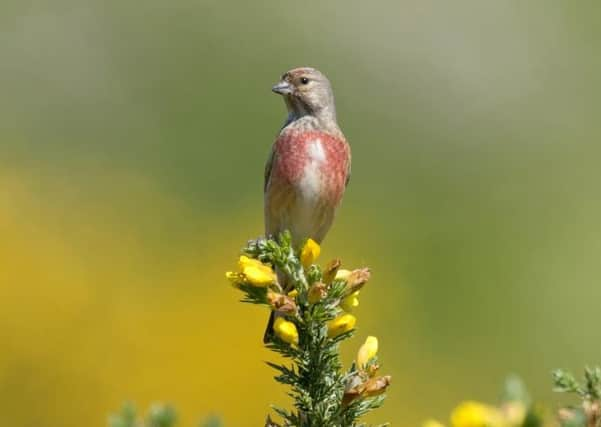‘Alarming decline’ in NI’s seed-eating birds


According to the State of the UK’s Birds 2020 (SUKB), which combines the latest results from bird surveys and monitoring studies across the UK, seed-eating birds and some of the geese and diving duck species that spend the winter in Northern Ireland, have seen their numbers half in some cases.
Linnets, lesser redpolls and reed buntings declined by 52 per cent, 53 per cent and 23 per cent respectively between 2008 and 2018.
Advertisement
Hide AdAdvertisement
Hide AdIt is understood that for linnets and reed buntings, the decline in Northern Ireland may be linked to the small and declining area of arable farmland, which provides food for these species over the crucial winter period. The worrying news for this group of seed-eating birds is in contrast with positive trends for the species in other parts of the UK.
Anne-Marie McDevitt, head of Species at RSPB NI, said: “Species are vital indicators of the health of our environment, and it is the role of government bodies and eNGOs to ensure that we safeguard our highest priority species and keep our common species common.”
Results from the Wetland Bird Survey show that since 2000 there has been a large decline in numbers of wintering diving ducks in Northern Ireland, principally at Lough Neagh. Changes in migratory patterns may play a role in these declines. However, the declines also coincide with a known decrease in the food available for these ducks in the lough.
Greenfinches - formerly a common sight at garden birdfeeders - have been disappearing from Northern Ireland. Their numbers are down 82 per cent over a 23-year period. The main driver of the fall in the population is thought to be the disease trichomonosis, which is thought to have first emerged in finch populations following spill-over from woodpigeons. There is apparently no cure for the disease, but it is possible to lower transmission risk at garden feeding stations by disinfecting any bird feeders and bird tables regularly,
Advertisement
Hide AdAdvertisement
Hide AdThe report reveals that, despite the valued input of skilled volunteers, less is known about bird species’ trends in Northern Ireland than in other parts of the UK, due to the lower coverage of survey schemes.
Ms McDevitt added: “We are indebted to the volunteers who collect the valuable data that made this report possible. However, we need an even larger and stronger network of bird survey volunteers across Northern Ireland to allow better monitoring of those less common species, and identification of problems before it is too late.”